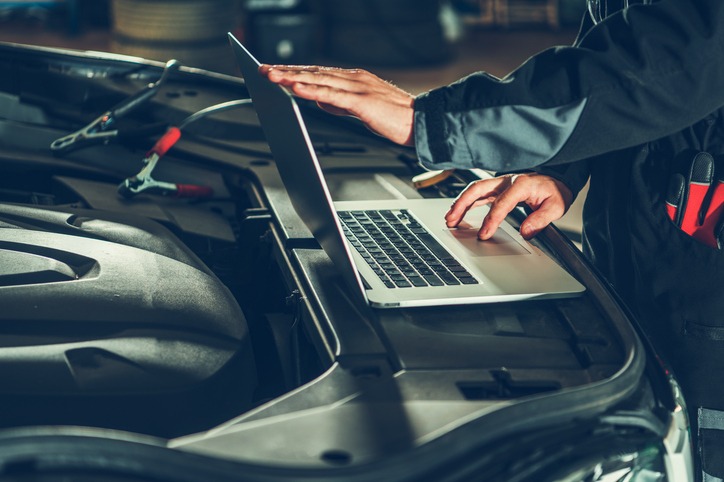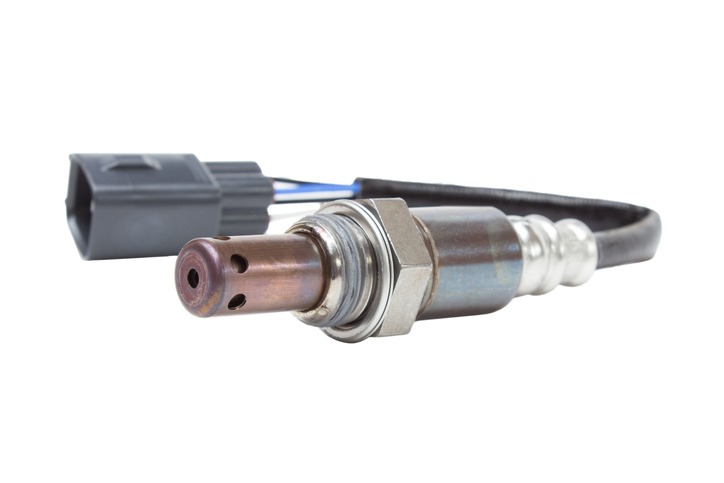Performance tuners play a crucial role in optimizing engines, improving handling, and maximizing the overall potential of cars. This career requires a deep understanding of automotive mechanics, electronics, and computer systems.
Education and Training

To launch your career as a performance tuner, you’ll need education through online tuning courses, motorsport degrees, or apprenticeships. These avenues will provide you with the foundational knowledge necessary to excel in this field. However, while formal education is important, practical experience and hands-on training are invaluable.
Online courses can offer a solid theoretical base, but you should seek additional opportunities that provide hands-on experiences. Consider 1-on-1 training sessions, which can accelerate your understanding of tuning theory and application. These personalized sessions allow you to delve deeply into the specifics of performance tuning, ensuring you quickly master essential skills.
Building a project car is another crucial step. This hands-on project enables you to apply what you’ve learned and gain practical experience. You’ll become familiar with the intricacies of tuning and see firsthand how adjustments impact performance. This exercise is invaluable for strengthening your skills and boosting your confidence.
Networking with race teams, car clubs, and local car enthusiasts can also provide practical training opportunities. These connections can offer real-world experiences that formal education can’t match, helping you build a reputation as a skilled tuner.
Essential Tools and Equipment

To excel as a performance tuner, you’ll need essential diagnostic tools such as tuning software and a reliable laptop. High-quality instruments like a wideband oxygen sensor and a dynamometer (dyno) are required for precise adjustments. Reliable data logging equipment is necessary to track and analyze performance metrics accurately.
Diagnostic Software Essentials
Reliable diagnostic software is essential for any performance tuner aiming to read and interpret data from a vehicle’s onboard computer. These tools are crucial for identifying issues, monitoring performance, and making necessary adjustments to achieve optimal tuning. Popular diagnostic software options include HP Tuners, EFI Live, and Cobb Accessport, each designed for specific vehicle makes and models.
As a performance tuner, you’ll rely heavily on these diagnostic tools to gather data from the vehicle’s onboard computer. Advanced features like data logging and custom tuning allow you to monitor real-time performance metrics and fine-tune the vehicle to meet specific performance goals. These capabilities are vital for delivering high-quality results that enhance vehicle performance.
Investing in high-quality diagnostic software is indispensable if you want to be effective in this field. These tools not only help you troubleshoot issues but also enable you to explore the full potential of custom tuning. With the right software, you’ll be equipped to make precise adjustments, ensuring that the vehicle performs optimally.
A solid understanding of diagnostic software is your first step towards becoming a successful performance tuner.
High-Quality Tuning Tools

After mastering diagnostic software, you’ll need high-quality tuning tools to make precise and reliable adjustments to a vehicle’s performance. The first essential tool is a wideband oxygen sensor, which provides accurate air-fuel ratio readings helpful for tuning the engine’s fuel delivery system. This ensures you can effectively optimize engine performance.
Next, invest in robust tuning software. The right software allows you to calibrate various engine parameters, such as ignition timing and fuel injection, to achieve optimal power gains. A good tuning software package will feature a user-friendly interface and detailed data analysis capabilities, enhancing your tuning efficiency.
A dynamometer, often called a ‘dyno,’ is another invaluable tool. It measures the engine’s power output and simulates road conditions, enabling you to fine-tune the vehicle in a controlled environment. Using a dynamometer allows you to test adjustments in real-time, making sure that changes lead to measurable improvements in performance.
Reliable Data Logging

Accurate data logging tools, such as wideband air-fuel ratio gauges and OBD-II scanners, are crucial for monitoring and fine-tuning engine parameters. These tools enable the collection of real-time data, essential for precise tuning adjustments.
High-quality equipment, like standalone engine management systems and dyno tuning software, ensures the reliability and accuracy of the data collected.
Hands-On Practice
Start by tuning your own car to gain a firsthand understanding of the process and begin honing your skills. This initial hands-on practice will provide valuable insights into the intricacies of performance tuning.
Once you feel confident, offer free tuning services to friends, members of local car clubs, or even at racetracks. This approach not only helps you gain more experience but also builds your reputation within the community.
If you discover a true passion for tuning, consider starting your own business or seeking positions at established workshops. This provides a structured environment for continuous practice and skill development.
Additionally, attend workshops, seminars, and industry events to learn new techniques and stay updated on trends. These gatherings are essential for ongoing education and networking in the field.
Networking and Community
To expand your presence in the tuning industry, consider participating in online forums to engage with fellow enthusiasts and professionals. This will allow you to share insights, learn from others, and stay updated on the latest trends. Additionally, attending industry events provides valuable networking opportunities to connect with experts in the field. Building these connections will not only deepen your knowledge but also create new opportunities for growth and collaboration.
Join Online Forums
Join online communities like NASIOC to network with fellow tuners and enthusiasts, gaining invaluable insights and advice. These platforms are treasure troves for knowledge sharing and staying updated with industry trends. By becoming an active member, you’ll immerse yourself in a community devoted to performance tuning, where experienced tuners generously share their expertise.
Here’s how you can make the most of these online communities:
Ask Questions: Don’t hesitate to ask questions, no matter how basic they might seem. The community is there to help, and you’ll learn faster by engaging in discussions.
Share Your Experiences: Documenting your own tuning projects and sharing them can lead to valuable feedback and tips from seasoned tuners.
Stay Updated on Industry Trends: Keep an eye on threads discussing the latest tools, techniques, and modifications. This will help you stay ahead in the ever-evolving tuning industry.
Network and Collaborate: Building relationships with other enthusiasts can open doors to new opportunities and collaborations, enhancing your growth in the field.
Attend Industry Events
While online communities are invaluable for learning and networking, attending industry events offers face-to-face interactions that can significantly boost your career as a performance tuner.
Events such as car shows, races, and tuning expos provide prime opportunities to connect with professionals and enthusiasts within the tuning community. These gatherings offer a platform to learn about the latest technologies, trends, and products shaping the industry.
Networking at these events can open doors to job opportunities, partnerships, and collaborations with tuning shops or race teams. Engaging with other professionals and enthusiasts allows you to gain valuable insights, advice, and guidance, helping you navigate the complexities of starting a career in performance tuning.
Building relationships at industry events isn’t just about immediate gains but also about establishing your credibility and growing your reputation within the community.
These face-to-face interactions can lead to referrals and recommendations that are crucial for career growth. Whether you’re looking to land a job or find collaborators for a tuning project, the connections made at industry events can be instrumental.
Don’t miss out on these opportunities to immerse yourself in the community and accelerate your career.
Connect With Experts
Connecting with experts in the tuning industry can significantly enhance your career and expand your knowledge base. Establishing a robust network is crucial for success.
Following are some effective strategies to connect with experts and build valuable relationships:
Network with Race Teams and Car Clubs: Engage with local car enthusiasts by attending race events and joining car clubs. Networking with race teams can provide insights into advanced tuning techniques and industry trends.
Volunteer at Workshops and Events: Offer your time and skills at workshops and tuning events. Volunteering not only broadens your network but also offers hands-on experience with various car models and tuning setups.
Engage with Local Car Enthusiasts: Participate in local car meets and events. Building connections with fellow enthusiasts can lead to valuable friendships and potential clients who trust your expertise.
Establish a Reputation: As you gain experience and connect with experts, focus on building your reputation within the community. Share your successes, offer advice, and showcase your work on social media to attract more career opportunities.
Building a Portfolio
Building a portfolio as a performance tuner begins with tuning your own vehicle and thoroughly documenting the process to highlight your skills and results. This initial step not only fulfills your passion but also enables you to demonstrate expertise in areas like ECU remapping and performance upgrades. Capture detailed before-and-after performance metrics to illustrate the impact of your work.
After gaining some experience, offer your tuning services to friends or local car enthusiasts. This will help you diversify your portfolio, showcasing a range of vehicles and tuning techniques. Document each project meticulously, including before-and-after photos, videos, and performance data. Collect testimonials from satisfied clients to add credibility and demonstrate the success of your projects.
Continuously update your portfolio with new projects to show your growth and increasing expertise. Highlight various tuning projects, such as ECU remapping, dyno tuning, and other performance enhancements. A comprehensive portfolio won’t only impress potential clients but also establish you as a knowledgeable and skilled performance tuner. Keep expanding your portfolio to stay relevant and demonstrate your ongoing commitment to excellence in the industry.
Starting Your Business

Launching your performance tuning business requires careful planning and strategic execution to ensure long-term success. Begin by crafting a comprehensive business plan that outlines your services, target market, and pricing strategies. This roadmap will guide your business decisions and attract potential investors or partners.
Ensure your business is legally compliant by registering it and obtaining any necessary licenses. This step legitimizes your operation and ensures adherence to local regulations. Concurrently, set up a professional workspace equipped with high-quality tuning tools, equipment, and software to deliver top-notch services and build a strong reputation.
In today’s digital age, establishing a robust online presence is crucial. Develop a professional website, engage on social media platforms, and invest in online advertising to reach a broader audience. Your online presence serves as a digital storefront and can significantly impact your business’s growth.
To attract and retain customers, consider offering promotions, discounts, and referral programs. These incentives encourage new clients to try your services and reward loyal customers for their continued support.
Conclusion
A career as a performance tuner offers a unique blend of technical expertise and creativity. By focusing on enhancing vehicle performance, you can make a significant impact in the automotive world. Gaining hands-on experience and staying current with the latest advancements in tuning technologies are essential steps in this journey.
